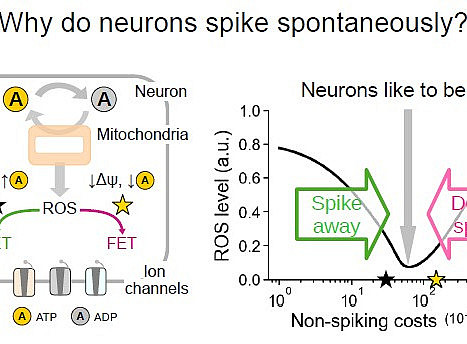19.03.2024: Chaitanya Chintaluri (ISTA): Why do neurons spike spontaneously? HS 32.01, Institut für Biologie, Bereich Pflanzenwissenschaften, Holteigasse 6, 17.00 Uhr
Conventionally, neurons are thought to be cellular units that process synaptic inputs into synaptic spikes. However, it is well known that neurons can engage in spikes spontaneously and display a rich repertoire of firing properties with no apparent functional relevance e.g. in in vitro cortical slice preparations. In such in vitro preparations, it is perplexing that these neurons, instead of saving their energy during information downtime and functional irrelevance, fire metabolically costly action potentials. In this talk, I will propose a hypothesis according to which intrinsic excitability in neurons may be a survival mechanism to minimize toxic byproducts of the cell’s energy metabolism. In neurons, this toxicity can arise when mitochondrial ATP production stalls due to limited ADP. Under these conditions, electrons deviate from the electron transport chain to produce reactive oxygen species (ROS), disrupting many cellular processes and challenging cell survival. To mitigate this, neurons may engage in ADP-producing metabolic spikes. I will explore the validity of this hypothesis using computational models that illustrate the implications of synaptic and metabolic spiking, especially in the context of dopaminergic neurons and their degeneration in Parkinson's disease. I will conclude with some predictions that can prove or falsify the validity of this theory.
